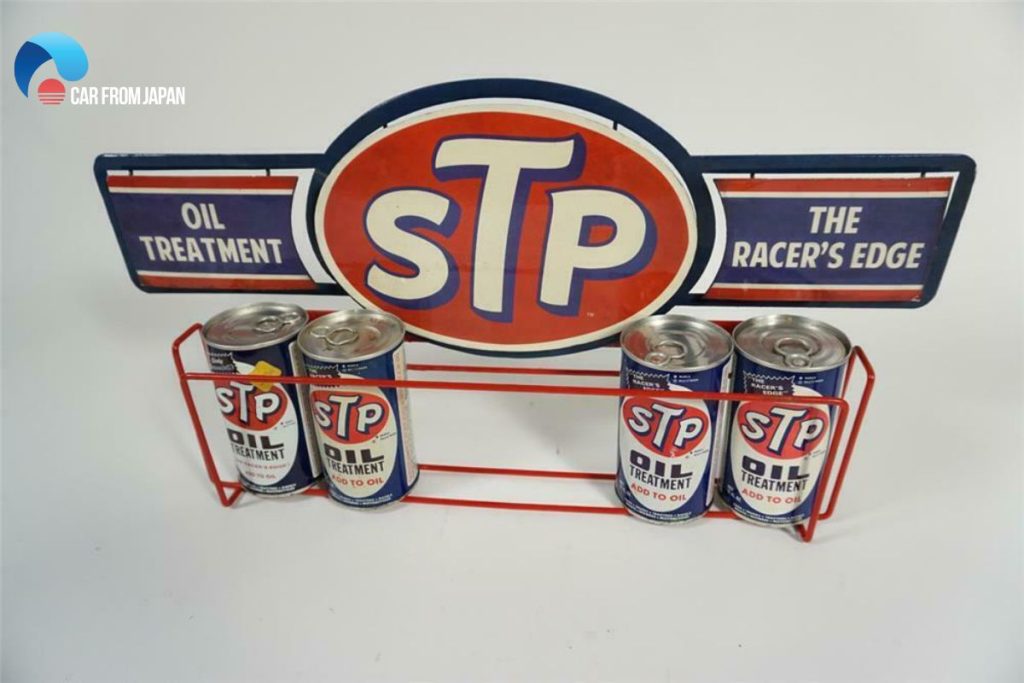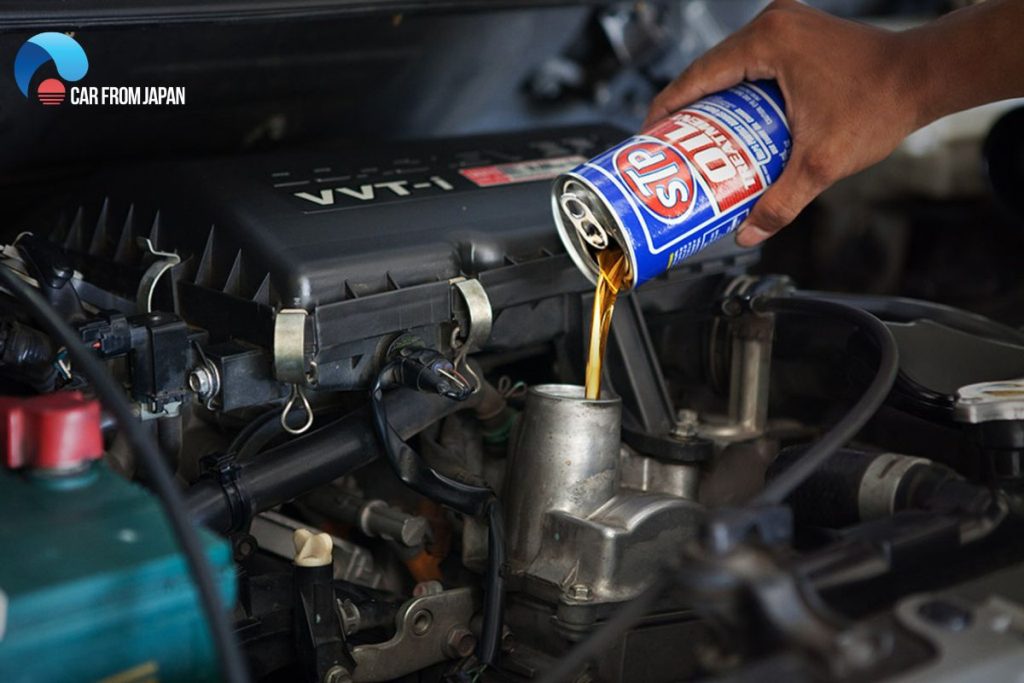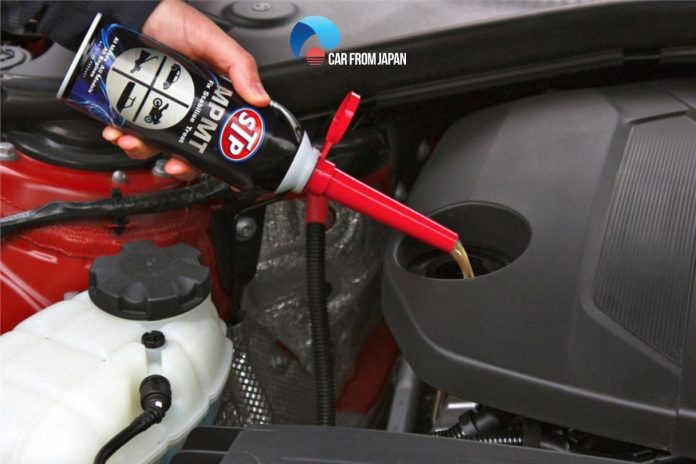Most racers know about STP engine oils. Without a doubt, it is one of the most popular synthetic oil brands globally. However, the truth is that many drivers only know this brand, but they do not actually know about the effect of this fuel, as well as whether this motor oil is really good for the vehicles. So, “Is STP oil good for your car?” It’s time to find out this myth!
Contents
What Does STP Oil Treatment Do?
STP additive oil is abbreviated by the following 3 words: Scientifically Treated Petroleum. Since 1954, STP has stood for science because science leads to innovation and performance. After that, we’ve seen the automobile evolve at warp speed, and STP has developed right along with it.
STP comes from an American brand name in automotive aftermarket products, especially lubricants such as engine oils and additives. After having basic information, let’s find out the practical applications of this oil.
In general, the longer the oil is used, the more additives are lost. Over time, using an engine oil that doesn’t have important additives can increase the wear of your car engine. It can lead to poor fuel economy, rust and corrosion, oil deposits, overheating problems, and other serious engine damage.
Engine oils are a type of lubricant that perform many vital functions, including making the engine components cool, keeping them clean, and protecting your car engine from rust, corrosion, and wear.
One of the most important functions of oil is to create a cushion between the components in the engine to help them move more easily. STP was created to perform this function. This motor oil helps to reduce the contact and friction between metals to limit the engine wear and improve the performance.
STP oil treatment for gasoline engines provides an extra layer of protection against the heat for vehicles over 75,000 miles and allows the oil to maintain its critical lubricating properties longer to keep the engine running strong until the next oil change. But STP oil is as good as we think. Read the next part to find:

Is STP Oil Good For Your Car? The Truth Will Be Revealed.
What are the advantages of STP oil?
According to auto experts, using STP oil treatment can help improve the health of your older engine. Compared to other synthetic oils like Mobil 1 or Royal Purple, STP may not be as outstanding as these oils, but it has been proven that it’s good for 5000-7000 miles, so you don’t need to replace the oil once. Therefore, we cannot deny the importance of this oil. As we know, today’s engines are incredibly complex.
To meet this demand, STP products work not just to make sure of these requirements, but to exceed them to meet the extreme driving conditions while delivering the maximum performance engine protection.
The oil has put science to the test, and the result is a motor oil that is engineered to help reduce engine wear, clean engine components, and protect against the harmful effects of rust and corrosion.
And it can keep critical components such as turbochargers clean. STP oil was engineered for use in 4-cycle petrol engines like trucks, cars, and other engines. However, it is not designed for vehicles with wet clutches. We’ll go over a few prominent uses of the oil as follows:
Treatment and removal of soot
Because, as we all know that after a long operation, the engine friction will produce a lot of soot. At that time, the STP oil additive will help treat and remove the soot completely. Avoid soot affecting the injectors and spark plugs. Another problem known as piston deposits leads to poor performance and reduced engine performance.
Moreover, it will reduce the compression of the motor and cut off the power output. The good news is that STP is manufactured to limit piston deposits. Moreover, it also increases engine efficiency and helps the fuel to be supplied by standards so that cars can operate more sustainably.
Improve the performance of car engine
Thanks to the STP, oil will help the car engine system operate strongly. That’s because the process of burning gasoline, air plus additives, takes place inside the combustion chamber. The substances participating in the combustion reaction will be eliminated from the outside by using this motor oil.
Save gasoline
Another undeniable benefit: STP also helps to save fuel more effectively. However, they really only work in certain conditions, or if the drivers operate the car properly. Your engine then works more stably with a large capacity, the high heat of gasoline is continuously heated, and it will mix into the combustion air completely inside the combustion chamber.
What are the disadvantages of STP motor oil?
Does STP oil treatment really work for any condition of your engine? “No” is the answer to this question. Although STP is proven to have many benefits for the engine. It still has some limitations and is recommended by many experts that engine additives should not be abused.

This oil treatment is especially beneficial if you have an old car, as it may consume some oil, then this STP could be a good choice for you. But if you have a brand new car, we don’t recommend this oil for new engines.
Adding the oil additive, such as STP, can make your engine oil. STP oil can give more than 10 points of viscosity. In very limited situations, thicker oil can be a good option for older vehicles with extremely worn engines, and reduce excess oil consumption.
STP oil is thick, even though you mixed it with oil, but you need to remember one thing with the modern engines, variable valve timing, guess. And you’re going to greatly affect the performance of the car engine if you change the viscosity. It can interfere with the action of existing additives and even hurt your engine at cold temperatures.
How To Use STP Oil Treatment?
The way to use this additive is to pour it directly into the car’s tank in the correct proportions, depending on each vehicle model or engine, as well as different product lines. According to the listing from the manufacturer.
STP oil should be added to the engine oil while the engine is warm, with a ratio of one 300ml can to 3 liters of oil or one 450ml bottle to 4 or 5 liters of oil (10% treatment rate). Before adding the STP treatment, you should warm up your engine. You need to keep your engine running for 15 minutes.
After adding STP to your vehicle’s engine, you can comfortably cover from 5000 to 7000 miles. Another interesting fact is that this engine oil requires a minimum oil consumption of only 15 to 24 liters annually.
FAQs
I heard STP can cause engine sludge. Is that true?
This is an old myth that mostly applied to older versions of the product being used with very basic, old-fashioned oils. Modern STP formulas are designed to mix safely with today’s advanced synthetic and conventional oils and shouldn’t cause sludge.
Are there any downsides to using STP?
For the right car (older, high-mileage), the risks are low. For the wrong car (new, high-performance), it could make the oil too thick, especially in cold weather, making it harder for the engine to start and for the oil to circulate properly.
How do I even use it?
It’s simple. The best time is during an oil change. Just replace one quart of your regular oil with one can of STP. If you’re just topping up, add it to a warm engine to help it mix in well. Just be careful not to overfill your oil.
Wrapping Up The Topic: Is STP Oil Good For Your Car?
Each form of lubricant is manufactured with its purpose and use; if you use them appropriately, they will bring extremely good results. Be smart when choosing the suitable oil for your car, buy quality, and know and understand the product you are using. Do this and you will be pleased with the results.
And we recommend you always consult with the manufacturers before deciding to use the STP oil. If you use it properly, you should be perfectly fine. And don’t just go around adding a higher viscosity engine oil, thinking this is going to always help the oil leak or wear the engine.



